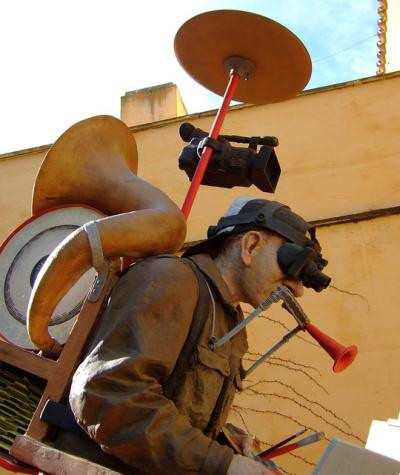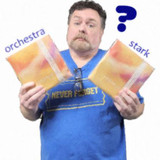"Cheating On" Your Bass - the Value of Playing Other Instruments
If anyone asks, I'm a bass player, through and through. That being said, I've spent much of my time playing other instruments as well. Mom was a school music teacher and a pianist, so we always had a piano in the house growing up. When the school started kids on band instruments in 4th grade, like a surprising number of bassists (in my experience) I picked up the trumpet; later, I moved on to playing Mellophone and French Horn in high school. I also own a home studio where I record mostly original music, and have several guitars, keyboards, drum sets and percussion instruments, and more. I even recently performed on a friend's cover of an old tune by Yes, contributing a trio of recorders. (If you check it out, I come in at around 1:28).
"So what?" you might ask. While bass is my primary instrument,
learning a host of others has been nothing but beneficial to my bass playing.
Bassists are
unique, in that our role in most musical styles is to bridge the gap between
rhythm, harmony, and melody. We truly are the glue that holds the entire band
(whether the lead guitarist wants to admit that or not...) But we can't put
together the puzzle unless we understand how the pieces all fit. While listening
to recordings, it's quite important to see (hear?) the big
picture, and learning even just the basics of a new instrument can open your eyes to ways that you can
support other players with your bass playing, since you understand
their role better.
Former employee Christopher Davis-Shannon and I used to talk about this subject a lot in the office when he worked here (he left a couple years ago to pursue his music full time!) Christopher is a far more formally-schooled player than I am, and he also teaches his own students on multiple instruments; so he made some nice points, and referred to some useful pedagogical resources for an column in an old e-newsletter from years back:
On the rhythm side, I can't recommend
enough the book "Stick Control" by George Lawrence Stone. All you need is a pair
of sticks and a practice pad, and you're good to go. Every rhythmic variation you
can dream of is in that book, as well as many that have probably never crossed your
mind. Besides giving you an appreciation for the coordination it takes to be a
drummer, it will improve your time and feel. I've also taken to doing these
exercises with my right hand while practicing slap. The crossover possibilities
are pretty exciting!
Harmony is an aspect of music that is vital to
understand as a bass player, but sometimes is overlooked, as bass is not
(usually) a chordal instrument. But sit down with a guitar, piano, or uke; even
taking the time to learn to work your way through a few chords can make a huge
difference in the way that you hear harmony. While I'll often practice arpeggios
on bass, there is no substitute for hearing a full chord - and experiencing the
way that various voicings can lead you to different resolutions."
TL;DR: Learning a chordal instrument will open a lot of doors in your bass
playing, by enabling you to properly support the harmony in songs. Great bass
lines lead the listeners ears to the next change, and having a deeper
understanding of harmony is a great way to get there. And learning a percussion instrument can give new insights into rhythmic interplay and get you out of your conventions and off your plateaus.
In the end, playing
any other instrument will greatly benefit your bass playing and make you a more
well-rounded musician. It doesn't hurt that it tends too be pretty fun, too!
Recent Posts
-
Pirastro's Perpetual Bass Strings - Do I want Stark, Medium, or some combination?
I just spent the time writing this up to post in a thread at Talkbass, so I figured I'd also share i …Nov 12th 2025 -
Preserving our Humanity
Our site has a very distinctive style and flow. And that comes from our longtime dedication to being …Sep 3rd 2025 -
What can Brown do for you? Nothing good, at least lately.
I really don't think I've ever publicly called out any other companies, so this is a first. But I've …Aug 13th 2025




